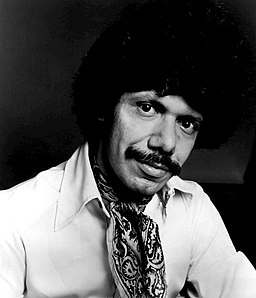I read late yesterday afternoon that Chick Corea died this week at age 79. I’m deeply saddened, almost to the point of tears.
Like perhaps many of my generation, I learned of Chick Corea when he played with jazz fusion powerhouse Return to Forever. I saw Return to Forever at Orchestra Hall in Minneapolis in 1975 or 1976. (It’s true that if you remember the 70s you didn’t live through them.) And although I can’t remember when I still rank it as one of the best concerts I’ve ever seen. It was stunning how much music and sound four musicians could produce. It was also the first time my friends and I were at a concert with an intermission. We’d arrived a bit late and our long hair and wore flannel shirts didn’t quite fit in with the suits and gowns wore by people drinking wine during the intermission.

Chick Corea, 1976
It was only later when I was introduced to mainstream jazz that I learned the Chick was part of the groundbreaking fusion music of Miles Davis. In fact, In a Silent Way and A Tribute to Jack Johnson are among my favorite fusion records. Yet fusion was far from the be-all and end-all of Chick. Having played keyboards in a junior high garage band, it was easy for me to become a fan. While I have almost all the Return to Forever releases from the mid-70s, I have at least a score of other recordings in Chick’s catalog. Solo piano releases, solo albums, his work with Gary Burton, and more recent endeavors just scratch the surface. (I would be remiss if I didn’t mention that Sioux Falls native Mike Miller played guitar in the second incarnation of Chick’s Elektric Band and the album Elektric Band II: Paint the World.)
I was fortunate enough to see Chick and Origin in Sioux Falls in January 2000. I insisted my three daughters (then 8, 10, and 13) attend the concert, telling them I wouldn’t let them miss the opportunity to see one of the world’s best pianists. Granted, they didn’t enjoy the more standard acoustic jazz and may even resent their mandatory attendance to this day. I loved it, though. It was 180 degrees from what I saw some 25 years before. Regrettably, I didn’t follow through on plans to attend a performance in Omaha on Return to Forever’s reunion tour in the summer of 2008.
Since then, Chick released two albums over three years that are among my favorites of his work and verified his virtuosity in both fusion and straight jazz. In 2009, there was Five Peace Band Live, where he and John McLaughlin headed a great fusion quintet. January 2012 saw another live release, Further Explorations. This time, though, Chick joined with bassist Eddie Gomez and drummer Paul Motian, both former Bill Evans sidemen, for an exquisite trio performance using Evans as a template.
Despite his age, Corea released new or live material 13 times in the last decade. Moreover, as one writer noted a year ago, Corea “toured around the world on several completely different projects, and has commissions lined up that will consume every scrap of ‘downtime’ he might get in 2020.” I’m deeply grieving not having the chance to see him perform again and, even more so, losing the music that could have been.
It’s up to us as performers to be responsible for making sure there’s a good groove there. My rule number one of ethics as a performer is that you can never blame the audience for being a bad audience.
Chick Corea, JazzTimes, January 22, 2020







